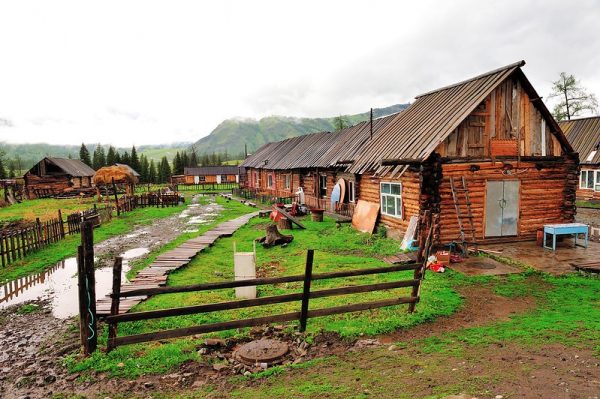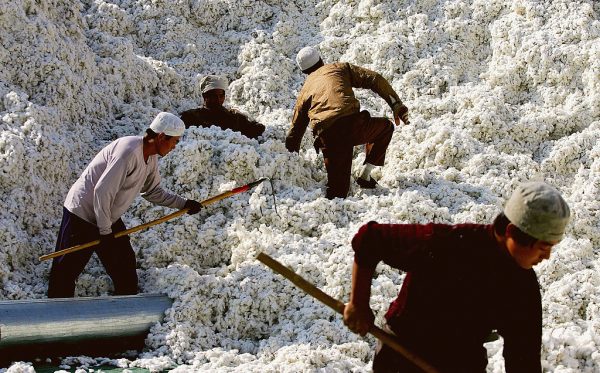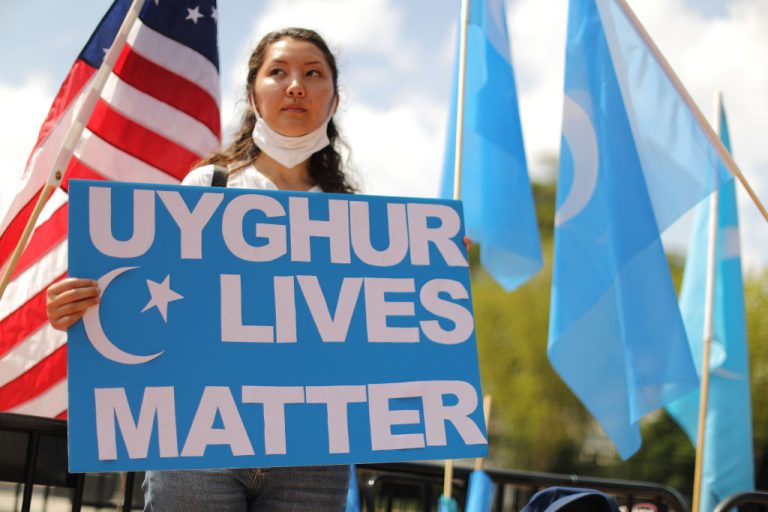Two Canadians who lived in China’s Xinjiang Autonomous Zone for almost a decade have stepped forward to speak about how they witnessed the region’s transformation to a security state as the Chinese Communist Party (CCP’s) Uyghur genocide ramped up.
Gary and Andrea Dyck are Canadian citizens who lived in Xinjiang for almost a decade. In an interview with AFP, Andrea, who settled in Xinjiang together with her husband Gary in 2007, said more and more restrictions were placed on Uyghur Muslims as time went by, with a new rule being slapped on the community almost every week.
In 2009, the CCP began dismantling Uyghur neighborhoods. People were moved away from traditional community living arrangements and into apartment complexes. The Party began a campaign of wiping out the Uyghur traditions and faith, placing restrictions on things such as clothing, language, food, and religion. Andrea recounts reading a sign in a prominent market that banned speaking in the Uyghur’s Turkic native language.
In 2016 the communist regime escalated the persecution significantly. The couple report there were more police patrolling the region, while CCTV cameras began being extensively utilized along with checkpoints at major intersections. They described the security to simply enter a grocery store as airport-level.

Then came the infamous internment camps. Uyghur community members were sent to these camps, and they were in no position to fight back against the regime’s brutality and technocracy. One detention center was built close to where the Dycks resided, which according to Gary, was constantly monitored by security cameras and featured a 15-feet high wall topped with barbed wire.
Success
You are now signed up for our newsletter
Success
Check your email to complete sign up
As Uyghurs became terrified, many resorted to fake social media posts in an attempt to save themselves from authorities. The Dycks say some young Uyghur men posted videos of themelves drinking or smoking in order to appear less Muslim.
“A few of our [then] 15-year-old son’s friends were turning 18 soon, and they were fearful because they would be legal age and they were wondering if they were going to be taken to these camps next, and so they were actually dreading turning 18,” Gary told AFP. “Where [else] in the world does a 17-year-old dread turning 18?”
The couple left Xinjiang in 2018, joining a huge exodus of foreigners. Gary described the entire region as having become a “huge penitentiary.” The couple was concerned that if they stayed any longer, the Uyghurs who knew them could be taken to concentration camps just for associating with foreigners.
Genocide, slave labor, and forced sterilization
Gary and Andrea’s admission comes as the British MP’s in the House of Commons approved a motion declaring Beijing’s persecution of Uyghurs as genocide. Interestingly, Boris Johnson’s government opposed the motion, with Asian Minister Nigel Adams arguing that even though there was strong evidence to support the genocide designation, only national and international courts should decide whether a situation amounts to genocide.
Tim Loughton, a Tory MP, pointed out that he will be raising the issue of the Hong Kong erosion of freedom and Democracy and the Uyghur persecution with relevant parties. “For too long, China has got away with it because people don’t call them out and they don’t stand up to China. Today, we will continue to stand up to China, and we will join with you and with parliamentarians and others around the world to say to China: You will not get away with this anymore. We are calling you out,” he said in a speech.
A recent expose by Sky News exposed the Uyghur slave trade taking place on the Chinese Internet. According to the media outlet, Uyghur labour is sold in batches of 50 to 100 workers on China’s version of Google, Baidu. When Sky contacted Baidu for comment on the issue, the firm refused to respond. One of the listings posted on Baidu stated that the “security of workers will be guaranteed by the government.”
There was no indication that the workers would be compensated in any manner. A report released in March by the Australian Strategic Policy Institute (ASPI) estimates the number of Uyghurs who were relocated from Xinjiang to factories across China at approximately 80,000.
In an interview with Japanese newspaper Sankei Shimbun, an exiled Uyghur gynecologist, referred to as Gulgine, revealed that the Xinjiang territory has seen almost 80 forced sterilization surgeries daily in the past few years. She recounts how many Uyghur women were simply put in trucks and taken to a sterilization center where the procedure was conducted on them in just five minutes. She says many of the women cried, as they did not know what was being done to them. The gynecologist admits to having conducted such surgeries herself, and was also sterilized as part of the government project.
Big corporate hypocrisy
Rep. Drew Ferguson (R-GA) recently called out American companies for hypocrisy in their criticism of laws passed by democratically elected American lawmakers while signing deals in communist China. He was speaking in the aftermath of mega corporations such as Delta Airlines, ViacomCBS, and Coca-Cola’s rebukes against Georgia for passing election integrity reform laws because the laws supposedly limit voting rights.
Ferguson said companies who conduct business with the CCP lack credibility on the issue of human rights, “I think you have to call out the hypocrisy of the companies,” Ferguson said in an interview with Breitbart News Daily.

“If you’re going to go in and hammer our Georgia legislature, yet continue to fly airplanes and sell sugary drinks in China given their human rights record, then I think you’ve got some answering to do.”
He continued, “How in the world can you come after [an election] law in Georgia that is actually expansive and better, yet you’re signing deals with Chinese companies making billions of dollars and they’re killing an entire generation of Uyghurs? How wrong is that?”
The NBA has especially been facing increasing criticism for signing various deals with Chinese enterprises which use cotton produced from slave labor in Xinjiang. Golden State Warriors star Klay Thompson recently signed an agreement with Chinese apparel manufacturer Anta worth $80 million. Anta uses cotton sourced from the Xinjiang region where the CCP is running slave labor camps.
Brands such as H&M and Nike are also facing huge pressure to terminate their business with Chinese firms that use such labor.














